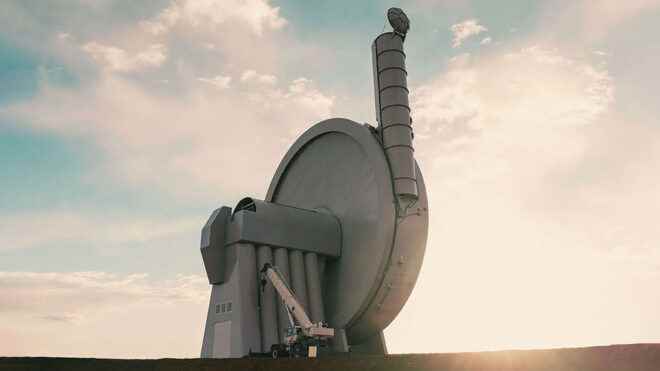NASA, SpinLaunch company will test the very remarkable and interesting-looking space satellite launch system. announced.
into space, or more accurately. to low earth orbit How are we sending satellites now? For now, in general from two-stage rockets we take advantage of. For example, the biggest name in the field recently SpaceX, loading all the satellites on the two-stage Falcon 9 rocket and putting them into orbit. This situation has some safety risks as well as negative effects on the environment. In addition, although rocket-based takeoffs are cheaper than in the past, they still create a very high cost. SpinLaunch company does this at least with small rockets (up to 200 kg) want to change to . The firm is fully develops satellite launch system into space. The company, which has been working on this issue for a long time, wants to make it real to launch small satellites loaded on a special mini rocket into the sky at 8 thousand km / h by spinning them with a giant centrifuge.
In this way, the first stage of existing rockets can be eliminated, only the second stage, which allows to sit in orbit, is included. In other words, there is no rocket firing at the exit from the Earth, only a special rocket thrust is taken into space at a very high altitude for the actual settlement. The system, which can be understood much better with this concept video above, is the National Aeronautics and Space Administration, the institution responsible for the space program studies of the United States. NASA will also test it.
YOU MAY BE INTERESTED
In this respect SpinLaunch with establishing a partnership NASA, will be one of the names that test the company’s interesting space satellite launch system at the end of the year. In this trial, a test will be carried out with an acceleration speed of 1,600 km / h, not the maximum, and many analyzes will be carried out in the process.
Of course, time will tell whether this system developed by SpinLaunch, which will make take-offs much cheaper, environmentally friendly and faster, will become a standard in the future. However, this system is owned by SpaceX or other private space companies. won’t eliminate rocket launches. Because standard rockets will still be used for large payloads / satellites / cargoes.
